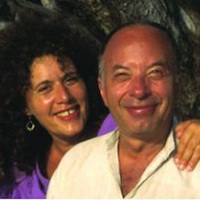“First it’s Shirley MacLaine, now Anne Bancroft. Who next?!,” the editor of the Yoga Journal exclaimed to us. She didn’t realize that she was actually talking about Deb’s mom, who is the author of a bunch of books, including Women in Search of the Sacred and Modern Mystics and Sages. She also happens to share the same name as the legendary actress: Anne Bancroft. As a result there have been many amusing moments of mistaken identity, such as the time she was invited to give a talk in London and when she arrived there was a mass of paparazzi waiting for…the other Anne Bancroft.
The best moment was when a magazine asked if she would write an article based on her book about Zen. She sent them the article and thought no more about it. But when the magazine was published, the article was illustrated with photographs of the other Anne Bancroft taken from her movie The Graduate, frantically smoking a cigarette and looking anything but Zen-like.
Deb’s mom has a remarkably egoless attitude to all this. She is not concerned in the slightest that people think she is THE Anne Bancroft, or that they give the credit for her books to the other, more famous one. She does not need to identify herself as an author, or to think of herself as anything special, as she is genuinely content with herself.
Thinking about this, we began to take note of all the times we identify with our ‘labels’ as being who we are, or that reinforce an image that makes us appear special—”I am a single parent/ recovering alcoholic/ cancer survivor,” or “I am an American/ Russian/ Christian/ Buddhist.”
In the search for an identity we hide behind our title, profession, illness, or religion, and become attached to the story the label creates, even introducing ourselves as a label, or only relating to others who identify themselves in the same way. We feel a separation from, if not hostility toward those with a different label. As a result, race and religion are great dividers of humankind, causing untold suffering and conflict.
A while ago we were on a flight from India to Dubai. As Ed walked through the plane he met the captain, who was from the US. Together, we were the only Americans on the plane. When he learned that we had written a book with the Dalai Lama, Paul McCartney and Richard Gere, he was so impressed he invited us to sit in the cockpit. He said that we were very lucky as his co-pilot was a Saudi prince. All he wanted was an autographed copy of our book for his wife. It made us wonder what would have happened if Ed had said he was a vacuum cleaner salesman.
We gain our identity through our work. As children we are constantly asked what we want to become when we grow up, the emphasis being that our work becomes our identity: “I am a doctor/ teacher/ dancer.” Alongside this is the sense of failure, guilt or unworthiness if we do not become what was expected of us, if we do not succeed at our work label.
These are the big labels through which we find our identity, but there are also many smaller ones, the more personal and hidden labels, the ways in which we negatively see ourselves, such as: weak, unworthy, stupid, or hopeless. Recognizing all these ways we identify ourselves–-all the masks that we put on in order to be thought of in a certain way–-is vital in our journey to understanding ourselves.
Do we switch from one to another during the day, keeping the real one hidden? Beneath the masks, who is there? Do we know this person? Who are we without the labels? Do we so identify with the masks that we have lost sight of who lies beneath them? The labels are only a part of us, not the whole of us, and we need to honor our whole being.
Photo: thanks to George Eastman at http://www.flickr.com/photos/george_eastman_house/3123700650/











Read 0 comments and reply